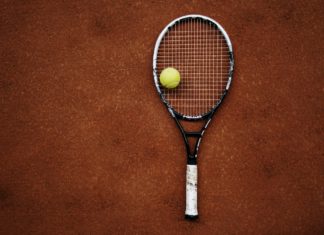Carlos Alcaraz’s mysterious bout of cramping, which plagued him during his semifinal loss to Novak Djokovic at the French Open, is yet to be fully understood. Detailed answers will likely emerge in the coming days and weeks. However, the immense pressure of playing a 22-time Grand Slam champion on such a prestigious stage undoubtedly weighed heavily on the 20-year-old.
Alcaraz acknowledged, “The tension of the match… I started the match incredibly nervous. The intensity of the initial sets… robust rallies, swift dashes, drop shots… a combination of many factors. But primarily, it was the tension pervading the initial two sets.”
The Spaniard managed to put on an impressive display in the latter part of the second set, bringing the score to a set each, before his right leg gave way to cramping at 1-1 in the third set. Alcaraz expressed that he had “let himself down” with the nature of the loss. Adding to the sting, he stands to lose the world No.1 ranking to Djokovic, should Djokovic clinch the title in Paris on Sunday.
Under a scorching 86°F heat, the two competitors pushed each other to their limits in the first two sets, lasting two hours and 18 minutes. Alcaraz reflected on past matches where cramping posed a challenge but conceded they were “not of this scale”.
“I would say the first and second sets were incredibly intense… and I started to cramp in my arm,” he said. “At the onset of the third set, every part of my body started to cramp, not just the legs. My arms, every part of my legs… It was tremendously tough for me to move in the third set… and into the fourth set… My entire body started to cramp.”
Alcaraz faced a formidable opponent in Djokovic, who, being 16 years his senior, remained composed in his 45th Grand Slam semifinal, while Alcaraz seemed shaken right from the off.
“It’s not easy to play against Novak… a legend of our sport. Anyone who claims to face Novak without nerves is not being truthful,” he said. “Playing a Grand Slam semifinal, you experience intense nerves, even more so when up against Novak. That’s the stark truth. I hope the next time I face him will be different, but the nerves will still be there.”
During a commentary for Eurosport, three-time Roland Garros champion Mats Wilander suggested that Alcaraz’s playstyle uses more energy than Djokovic’s. “The difference in how Novak moves around, even when fatigued, and compared to Carlos, is striking,” he said. “I’ve never seen this from Carlos, and Novak has highlighted a weakness.”
“Carlos Alcaraz covered an average of 20 meters up to his cramping part. In 155 points played, that’s 3,000 meters, equivalent to thirty 100-meter sprints in two hours. He’s not just jogging; he’s sprinting for every ball. Novak is smoother and may read the game better, taking fewer steps.”
Djokovic could empathise with Alcaraz’s stress.
“I’ve been there several times,” he said. “Early in my career, I grappled quite a bit physically. I can understand the emotions and circumstances that mentally and emotionally affect you.”
“In one of the world’s greatest tournaments, for perhaps the first time in his career, he was expected to win. He was likely not the underdog, chasing the title and attempting to triumph against a favourite. It was probably the reverse. So perhaps that influenced him… and as he admitted, it likely did.”








